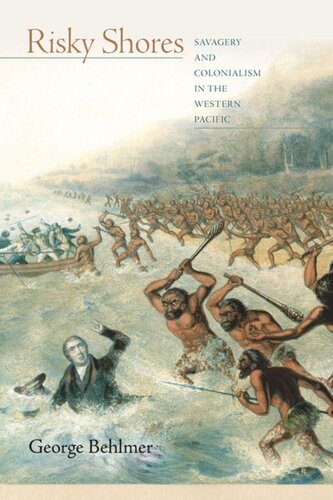

Most ebook files are in PDF format, so you can easily read them using various software such as Foxit Reader or directly on the Google Chrome browser.
Some ebook files are released by publishers in other formats such as .awz, .mobi, .epub, .fb2, etc. You may need to install specific software to read these formats on mobile/PC, such as Calibre.
Please read the tutorial at this link: https://ebookbell.com/faq
We offer FREE conversion to the popular formats you request; however, this may take some time. Therefore, right after payment, please email us, and we will try to provide the service as quickly as possible.
For some exceptional file formats or broken links (if any), please refrain from opening any disputes. Instead, email us first, and we will try to assist within a maximum of 6 hours.
EbookBell Team

4.7
76 reviewsWhy did the so-called "Cannibal Isles" of the Western Pacific fascinate Europeans for so long? Spanning three centuries—from Captain James Cook's death on a Hawaiian beach in 1779 to the end of World War II in 1945—this book considers the category of "the savage" in the context of British Empire in the Western Pacific, reassessing the conduct of Islanders and the English-speaking strangers who encountered them. Sensationalized depictions of Melanesian "savages" as cannibals and headhunters created a unifying sense of Britishness during the nineteenth and early twentieth centuries. These exotic people inhabited the edges of empire—and precisely because they did, Britons who never had and never would leave the home islands could imagine their nation's imperial reach.
George Behlmer argues that Britain's early visitors to the Pacific—mainly cartographers and missionaries—wielded the notion of savagery to justify their own interests. But savage talk was not simply a way to objectify and marginalize native populations: it would later serve also to emphasize the fragility of indigenous cultures. Behlmer by turns considers cannibalism, headhunting, missionary activity, the labor trade, and Westerners' preoccupation with the perceived "primitiveness" of indigenous cultures, arguing that British representations of savagery were not merely straightforward expressions of colonial power, but also belied home-grown fears of social disorder.